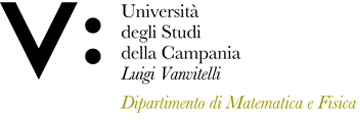Nunzio ITACO
Insegnamento di COMPUTATIONAL METHODS FOR PHYSISCS
Corso di laurea magistrale in PHYSICS
SSD: FIS/04
CFU: 8,00
ORE PER UNITÀ DIDATTICA: 76,00
Periodo di Erogazione: Secondo Semestre
Italiano
| Lingua di insegnamento | Inglese |
English
| Teaching language | English |
| Contents | An introduction to numerical methods which are used in solving problems in physics, including solutions of differential equations, matrix operations and eigenvalue problems, interpolation and numerical integration, modeling of data and Monte Carlo methods. |
| Textbook and course materials | General reference books: |
| Course objectives | The student will develop a familiarity with some of the most used algorithms in Physics. Several examples of problems in physics will be used in order to demonstrate various numerical methods. The examples span over several fields. |
| Prerequisites | The basic knowledge of one of the following computing languages: C/C++, Python, Fortran |
| Teaching methods | The course is offered for one semester and comprises 40 hours of lectures, in addition to 36 hours of laboratory exercises aided by the use of a computer. The course will also include five projects that students will receive feedback on. |
| Evaluation methods | Specific knowledge will be verified in the oral exams with questions starting from the projects realized and presented by the students. |
| Course Syllabus | 1) Errors and Uncertainties in Computations |








